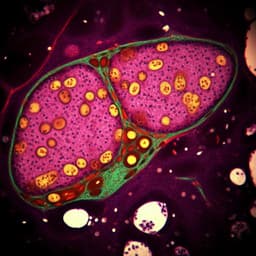
Medicine and Health
Peripheral-specific Y1 receptor antagonism increases thermogenesis and protects against diet-induced obesity
C. Yan, T. Zeng, et al.
This groundbreaking study reveals how targeting peripheral Y1 receptors can significantly combat obesity by enhancing energy expenditure and reducing fat mass. Conducted by a dedicated team including Chenxu Yan and others, the research opens up exciting possibilities in obesity treatment and metabolic health.
Related Publications
Explore these studies to deepen your understanding of the subject.







